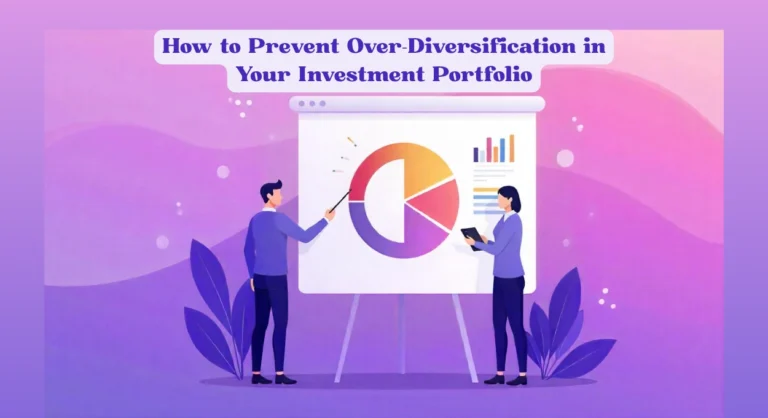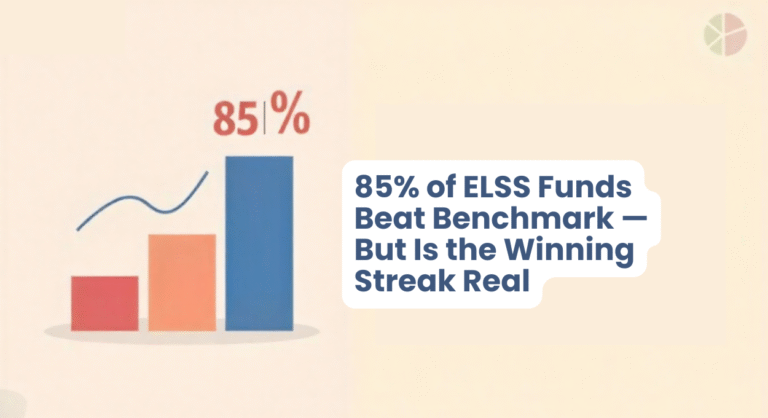ETFs and Taxes: Your Simple Guide to Smarter Investing in India
Alright, let’s get straight to it: Exchange-Traded Funds (ETFs) are a huge hit among Indian investors these days. They’re awesome for getting diversification without breaking the bank, and you can trade them super easily. But here’s the real talk – to truly make the most of your ETF investments, you absolutely have to get a grip on how they’re taxed.
No one wants to earn great returns only to see a big chunk disappear into tax payments because they didn’t know the rules. That’s where this guide comes in! We’re here to simplify the whole world of ETFs and Taxes for you. We’ll break down everything, from how your profits are taxed to what happens with dividends, all based on the latest rules (as of 2024-2025).
Consider this your straightforward, friendly chat about ETF taxation in India, designed to help you keep more of your hard-earned money. Ready to clear up the confusion? Let’s dive right in!
Also Read :- Gold ETF vs Gold Mutual Fund: Which Is Better for Indian Investors in 2025?
First Things First: What Exactly Are ETFs? (A Quick Refresher)
Before we get into the nitty-gritty of ETFs and Taxes, let’s quickly remind ourselves what an ETF is. Imagine a basket of different stocks, bonds, or even gold. An ETF is like that basket, neatly packaged and traded on a stock exchange, just like a single company’s share.
Instead of buying 50 different stocks individually, you can buy one unit of an ETF that holds all those 50 stocks. It’s an easy way to invest in a whole index (like Nifty 50) or a sector, without having to buy each component separately. Pretty cool, right?
Why Do Taxes on ETFs Even Matter?
You might think, “I’m making money, isn’t that enough?” Well, not quite. The real return you get from any investment is what’s left after taxes. This is called your “post-tax return.” If you don’t understand the tax rules, you might accidentally pay more tax than you need to, eating into your profits.
Knowing the tax implications helps you:
- Plan Better: You can choose ETFs and holding periods that are more tax-efficient.
- Avoid Surprises: No one likes an unexpected tax bill!
- Maximize Your Net Gains: Keep more of what you earn.
Not All ETFs Are Taxed The Same: It Depends on the “Basket”!
This is a key point: how your ETF is taxed depends on what it mainly invests in. The Income Tax Department categorizes them based on their holdings:
- Equity ETFs: These are the most common type. They invest at least 65% of their money in Indian company stocks. Think Nifty 50 ETF, Bank Nifty ETF, etc.
- Non-Equity ETFs: This is a broader group. It includes:
- Debt ETFs: Invest mostly in bonds and other debt instruments.
- Gold ETFs: Invest in physical gold (or gold-related assets).
- International ETFs: Invest in stocks or assets of companies outside India.
- Other Commodity ETFs: Invest in things like silver, crude oil (though less common for direct retail).
- Balanced/Hybrid ETFs: These have a mix of both stocks and debt. Their taxation depends on the proportion of equity they hold – if it’s over 65% equity, they’re treated like equity ETFs; otherwise, like non-equity.
Why does this classification matter? Because the tax rules are different for each!
Also Read :- ETFs vs. Index Funds: Decoding the Differences for Smart Investing
Capital Gains Taxation: The Big One!
When you sell your ETF units for a profit, that profit is called a “capital gain.” This is the main area where you’ll see tax implications. The tax rate depends on whether your gain is “short-term” or “long-term.”
A. Equity-Oriented ETFs (The Stock-Heavy Ones)
For ETFs that mostly invest in Indian stocks, the rules are like this:
Capital Gains Tax: Equity-Oriented ETFs (After July 23, 2024)
| Holding Period | What it’s Called | Tax Rate | Exemption (Annual) |
|---|---|---|---|
| Less than or equal to 12 months | Short-Term Capital Gains (STCG) | 20% | None |
| More than 12 months | Long-Term Capital Gains (LTCG) | 12.5% (without indexation) | ₹1.25 lakh per year |
Important Updates! You might have heard different numbers before. That’s because the tax rules for equity ETFs saw some changes effective July 23, 2024. Before this date, STCG was 15%, and LTCG was 10% on gains above ₹1 lakh. The new rules bring a slightly higher tax burden for equity ETFs.
Let’s see an example: Imagine you sell some equity ETF units:
- Scenario A: You held them for 14 months (so, long-term). Your profit (LTCG) is ₹80,000. Since this is below the ₹1.25 lakh annual exemption, you pay zero tax! Yay!
- Scenario B: You held them for 15 months, and your profit (LTCG) is ₹1.5 lakh. The first ₹1.25 lakh is tax-free. You’ll pay 12.5% tax on the remaining ₹25,000 (₹1.5 lakh – ₹1.25 lakh). So, ₹25,000 * 12.5% = ₹3,125 in tax. Still pretty good!
B. Non-Equity ETFs (Debt, Gold, International, etc.)
For ETFs that don’t primarily invest in Indian stocks, the taxation is a bit different.
Capital Gains Tax: Non-Equity ETFs
| Holding Period | What it’s Called | Tax Rate |
|---|---|---|
| Any holding period | Short-Term Capital Gains (STCG) | As per your income tax slab rate |
| More than 36 months | Long-Term Capital Gains (LTCG) | 12.5% (without indexation) |
Big Change for Debt ETFs (Post-April 1, 2023): If you invested in Debt ETFs after April 1, 2023, there’s a crucial change. Both short-term and long-term capital gains from these new debt ETF investments are now taxed as per your income tax slab rate. This means the 12.5% LTCG rate (and the indexation benefit, which made gains even smaller for tax purposes) is generally not available for these new debt ETF investments. So, debt ETFs became less tax-efficient for long-term holdings if bought after this date.
What about Gold ETFs? Gold ETFs are a special case. If you hold them for more than 36 months, any gains are considered Long-Term Capital Gains (LTCG) and are taxed at 12.5% (without indexation benefit). If you sell them within 36 months, the gains are Short-Term Capital Gains (STCG) and are added to your income, taxed as per your income tax slab.
Also Read :- Index Investing: The Smartest Way to Build Wealth Without the Stress
Dividend Taxation: Much Simpler Now!
Good news on the dividend front! Things got a lot simpler starting from Financial Year 2020-21.
- No more Dividend Distribution Tax (DDT): Before FY 2020-21, companies paid a tax (DDT) before giving out dividends, and then you received tax-free dividends. Now, that’s gone.
- Dividends are part of your income: Any dividends you receive from your ETFs are now simply added to your total income for the year.
- Taxed at your slab rate: This total income (including dividends) is then taxed according to your individual income tax slab rate. So, if you’re in the 30% tax bracket, your dividends will be taxed at 30%.
- TDS might apply: If the total dividend amount you receive from an ETF (or any other source) exceeds ₹5,000 in a financial year, the company or fund house will deduct 10% as Tax Deducted at Source (TDS). Don’t worry, this TDS amount can be adjusted against your final tax liability when you file your returns.
Smart Tax Planning Tips for Indian ETF Investors
Now that you know the rules, here are some actionable tips to help you save more on ETFs and Taxes:
- Be Patient with Equity ETFs: If you’re investing in equity-oriented ETFs, try to hold them for more than one year. This moves your gains from STCG (20% tax) to LTCG (12.5% tax with a ₹1.25 lakh annual exemption), which is much more tax-friendly.
- Use Capital Losses Wisely: Did you sell some other investment (stocks, mutual funds) at a loss? You can actually use those “capital losses” to cancel out (offset) your ETF capital gains. This can significantly reduce your taxable income. For example, a long-term capital loss can be offset against any long-term capital gain, and a short-term capital loss can be offset against both short-term and long-term capital gains. You can even carry forward losses for up to 8 years!
- Consider ELSS ETFs for Section 80C: While this post focuses on Section 80D for health insurance, remember that there are also “Equity Linked Savings Scheme (ELSS) ETFs.” If you invest in these, you can claim a deduction of up to ₹1.5 lakh under Section 80C of the Income Tax Act, over and above your 80D deduction. It’s a great way to save tax and invest in equities!
- Revisit Your Debt ETF Strategy (Post-April 2023): If you’re planning to invest in debt ETFs, especially for long-term goals, be aware that the tax benefit of indexation is generally gone for investments made after April 1, 2023. This means your gains will be taxed at your slab rate, which might be higher than the 12.5% LTCG rate. Consider if debt mutual funds (which might still offer some different tax treatment depending on their structure) or other debt instruments are more suitable for your post-tax goals.
- Always Keep Records: Keep clear records of your purchase and sale dates, costs, and selling prices for all your ETF transactions. This will make tax filing much easier!
Key Takeaways: Your Quick Cheat Sheet on ETFs and Taxes
To wrap things up, here are the absolute must-know points about ETFs and Taxes:
- It’s All About the Type: How your ETF is taxed heavily depends on whether it’s an equity-oriented ETF or a non-equity ETF (like debt, gold, or international).
- New Rules (2024): Be aware of the updated capital gains tax rates for equity ETFs (20% STCG, 12.5% LTCG above ₹1.25 lakh exemption).
- Debt ETFs Changed (2023): For new investments in debt ETFs (post-April 1, 2023), expect gains to be taxed at your income tax slab rate, with no indexation benefit.
- Dividends are Income: All dividends you receive from ETFs are added to your income and taxed at your personal slab rate, with 10% TDS if the amount exceeds ₹5,000.
- Plan Ahead! Holding equity ETFs for over a year can save you tax. And don’t forget to use any capital losses to offset gains!
Remember, tax laws can be complex and they do change. This guide gives you a good overview, but for personalized advice, especially if your investments are substantial or your financial situation is unique, it’s always a brilliant idea to chat with a qualified tax advisor. They can help you craft the perfect tax-efficient investment strategy!
Happy investing, and may your post-tax returns be bountiful!
FAQs (Frequently Asked Questions)
- How are ETFs taxed in India?
- ETFs are taxed based on whether they are equity-oriented or non-equity (like debt, gold, or international) and how long you hold them (short-term vs. long-term gains). Dividends are taxed at your income slab rate.
- What are the capital gains tax rates for equity ETFs in India (after July 23, 2024)?
- Short-Term Capital Gains (STCG) are taxed at 20% (for holdings ≤ 12 months). Long-Term Capital Gains (LTCG) are taxed at 12.5% (without indexation) on gains above ₹1.25 lakh per year (for holdings > 12 months).
- How are debt ETFs taxed in India now?
- For investments made after April 1, 2023, both short-term and long-term capital gains from debt ETFs are taxed as per your income tax slab rate, and the indexation benefit is no longer available.
- Are dividends from ETFs taxable?
- Yes, dividends received from ETFs are added to your total income and taxed at your applicable income tax slab rate. If the total dividend exceeds ₹5,000 in a financial year, 10% TDS (Tax Deducted at Source) is applied.
- What are some tax planning tips for ETF investors?
- Hold equity ETFs for more than 12 months to benefit from lower LTCG rates and exemption, use capital losses to offset gains, and consider ELSS ETFs for Section 80C deductions.







